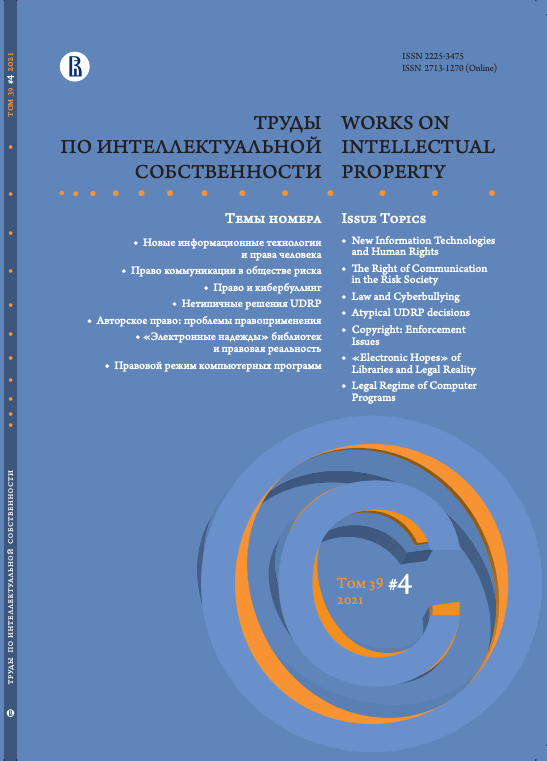THE RIGHT OF COMMUNICATION IN THE RISK SOCIETY
Abstract
The originality of today’s society is predetermined by information and communication technologies as technologies of the widest, most widespread use. They have received exclusive attention, including the scientific legal community. Analysis of the processes of co-development of law and technology contributes to the expansion of the disciplinary territory of law, especially information. The prevailing legal scientific discourse adequately evaluates both the advantages and risks of rapid technologization. In the context of a change in the technological structure, society, as it were, is re-mastering the science of interaction. In this regard, the article focuses on those aspects that, as a rule, remain outside the scope of scientific reflection. This is the right of communication, a sporadic change in social relations, the accelerated formation of network actors who represent their picture of the world in cyberspace and at the same time do not agree with the role of passive participants in information interaction. The author’s goal is to show that a large amount of accumulated knowledge and impressive examples of the use of innovative technologies in various areas of legal activity do not redeem the need for mastering the “fruits” of progress within the framework of accelerating domestic administrative processes, the right of citizens to access (legal) information, services online. Remaining in captivity of static legal conventions, we risk endlessly repeating the path of external and purely symbolic dressing up of old legal institutions in new technological clothes. The importance of the relevant methodology as a tool without which it is difficult to apply the achievements of civilization to satisfy the growing demand of citizens for legitimate inclusion in the agenda, public verification legally meaningful decisions. The main conclusion: under conditions of recognition of social pathologies, timely leveling of numerous risks associated with new forms of communication, technologies of the day can serve as a means of strengthening public-state interaction, so that actors representing public authorities listen more to the voice of the people, and the activity of civil society is directed towards positive channel.


